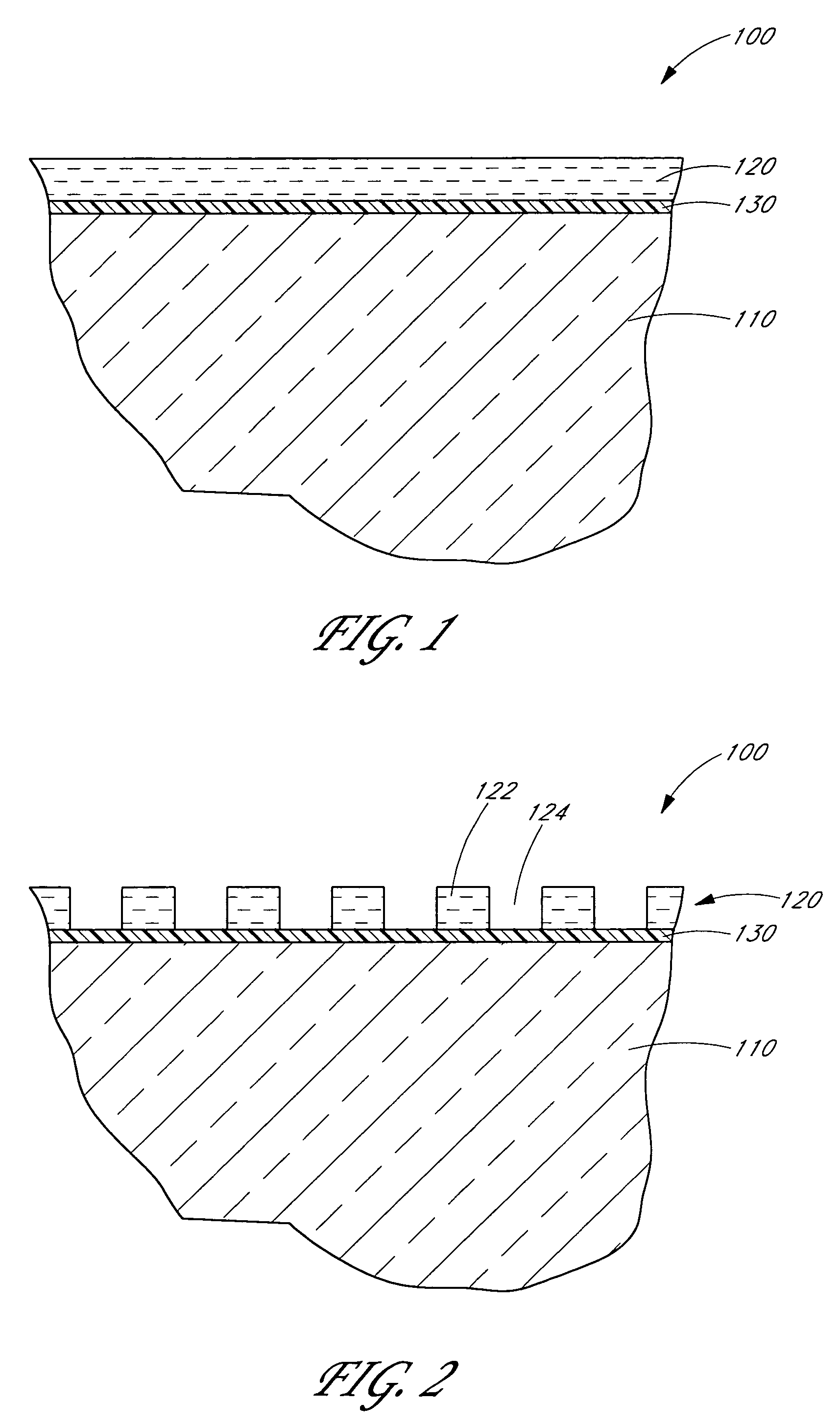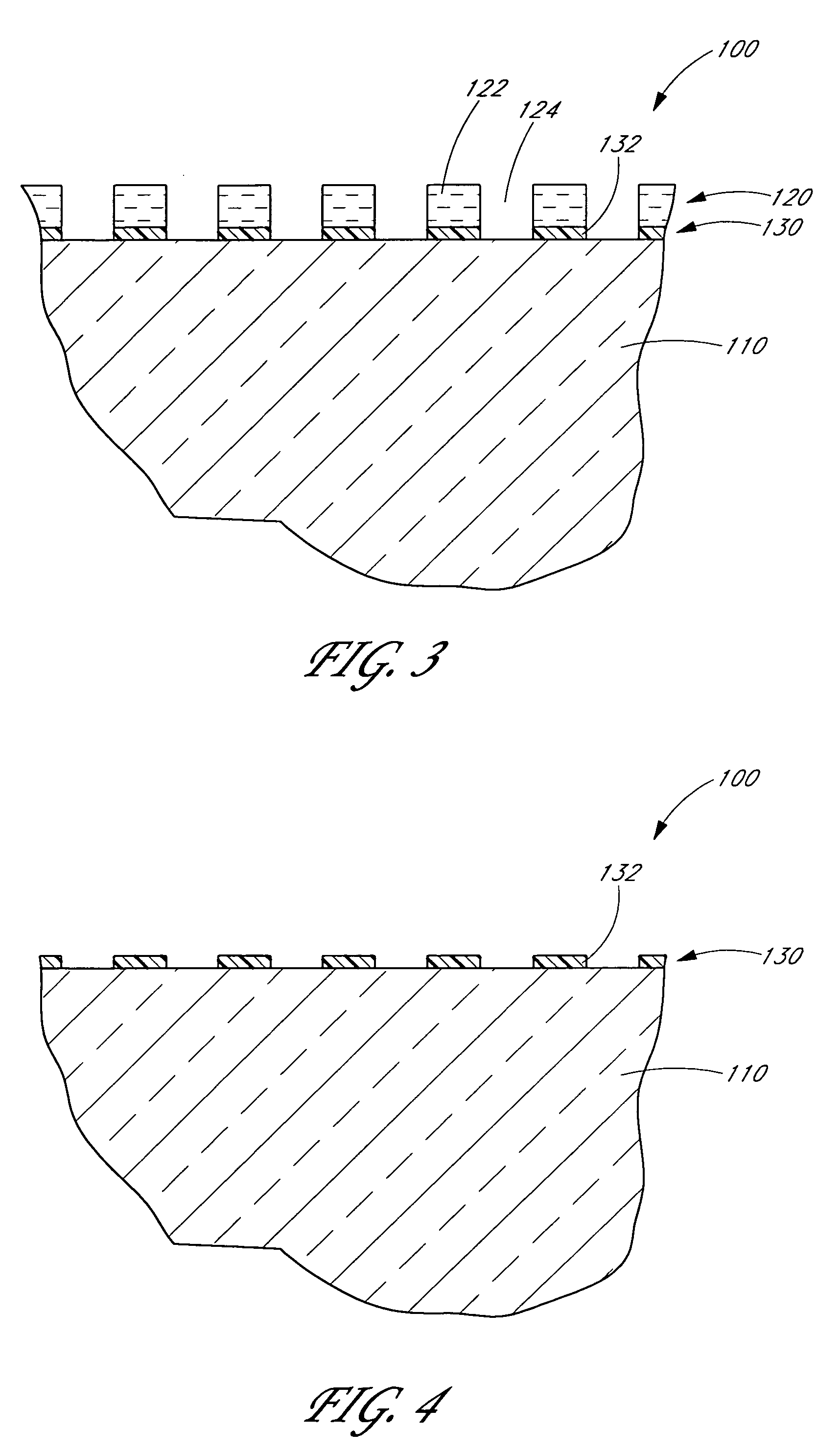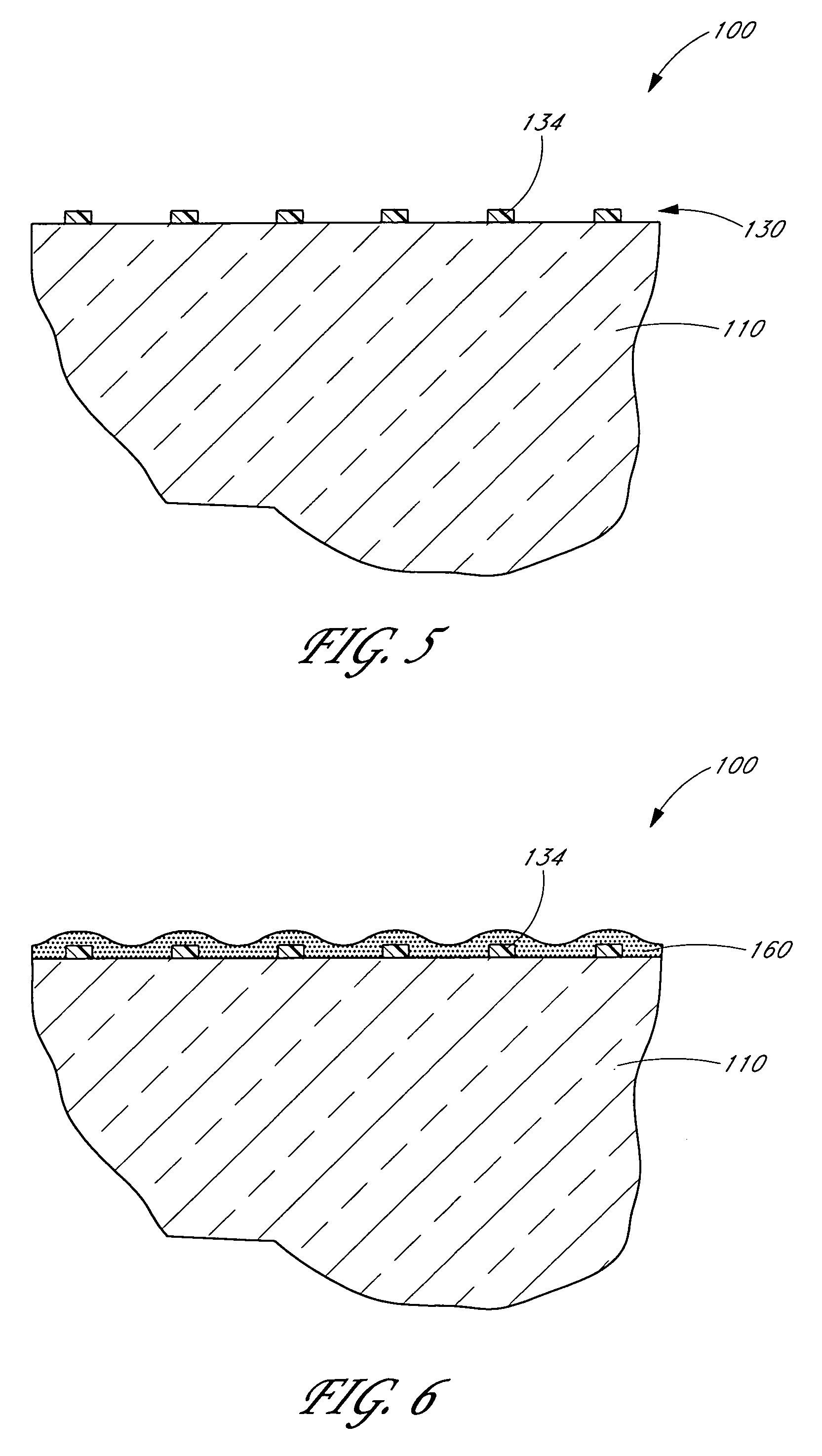Topography based patterning
a topography and patterning technology, applied in the field of integrated circuit fabrication, can solve the problems of prohibitively expensive x-ray and euv lithography implementation, difficulty in forming high-quality reticles, and various technical obstacles
- Summary
- Abstract
- Description
- Claims
- Application Information
AI Technical Summary
Problems solved by technology
Method used
Image
Examples
Embodiment Construction
[0026]The ability of block copolymers to self-organize can be used to form mask patterns. Block copolymers are formed of two or more chemically distinct blocks. For example, each block can be formed of a different monomer. The blocks are preferably immiscible or thermodynamically incompatible, e.g., one block can be polar and the other can be non-polar. Due to thermodynamic effects, the copolymers will self-organize in solution to minimize the energy of the system as a whole; typically, this causes the copolymers to move relative to one another, e.g., so that like blocks aggregate together, thereby forming alternating regions containing each block type or species. For example, if the copolymers are formed of polar and non-polar blocks, the blocks will segregate so that non-polar blocks aggregate with other non-polar blocks and polar blocks aggregate with other polar blocks. It will be appreciated that the block copolymers may be described as a self-organizing material since the bloc...
PUM
 Login to View More
Login to View More Abstract
Description
Claims
Application Information
 Login to View More
Login to View More - R&D
- Intellectual Property
- Life Sciences
- Materials
- Tech Scout
- Unparalleled Data Quality
- Higher Quality Content
- 60% Fewer Hallucinations
Browse by: Latest US Patents, China's latest patents, Technical Efficacy Thesaurus, Application Domain, Technology Topic, Popular Technical Reports.
© 2025 PatSnap. All rights reserved.Legal|Privacy policy|Modern Slavery Act Transparency Statement|Sitemap|About US| Contact US: help@patsnap.com



